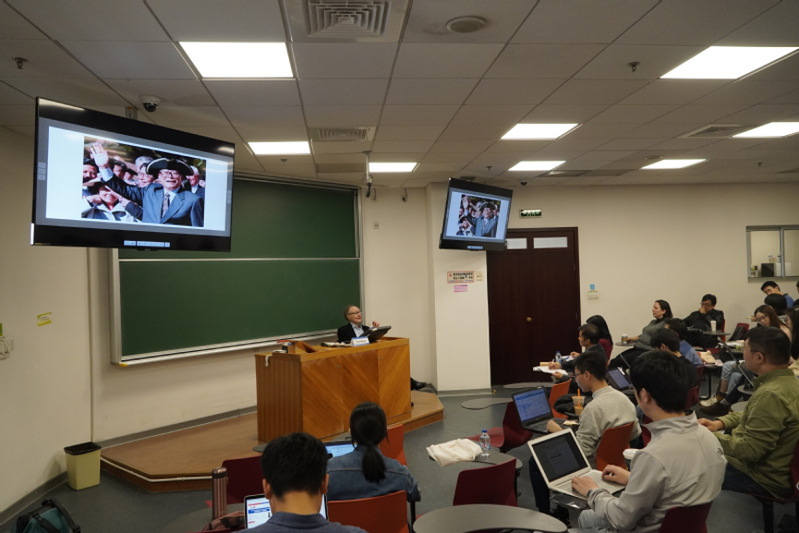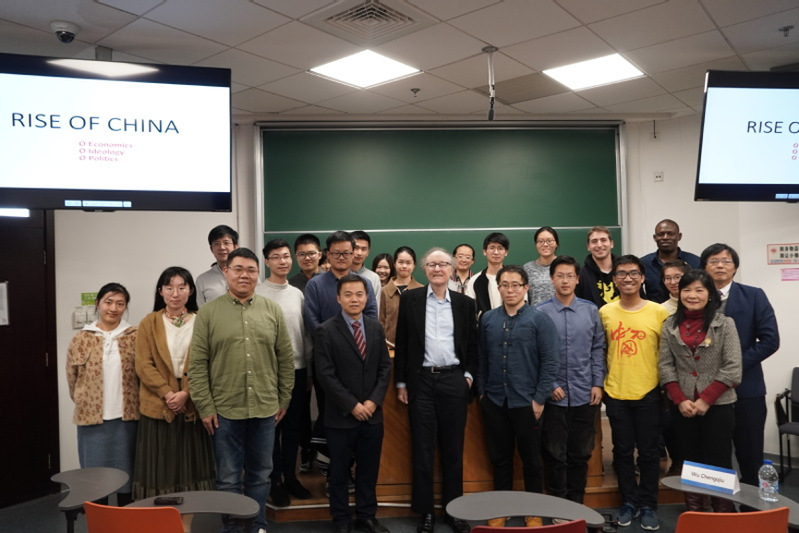
On 22nd November 2019, the Institute for Global Public Policy (IGPP) held the 23rd event of the Fudan-LSE Lecture Series in Room 406, West Sub Building of Guanghua Tower at Fudan University. Professor Steve Kelman, Weatherhead Professor of Public Management at Harvard University’s John F. Kennedy School of Government, delivered the lecture “US-China Relations: Past, Present, Future”. Students and faculties across Fudan University attended the lecture. Professor Chengqiu Wu, associate professor from the School of International Relations and Public Affairs at Fudan University, chaired the lecture.
Professor Wu introduced Professor Kelman as a well-known scholar with a high reputation in the field of public administration. Professor Kelman received his Ph.D. from Harvard University in 1978 and was promoted to professor at Harvard University in 1986. He was elected as a member of the National Academy of Public Administration in 1995. Professor Kelman’s research interests cover public budget, government procurement, research methods, public organization theory, government performance, among others. His research has exerted a broad and profound impact on the theoretical research and practical exploration of public management in the United States and the world.

Professor Kelman started the lecture with a summary on the different stages of US-China relations. He pointed out that trade and missionary work were the original motivation for US-China contacts. After the founding of the United States, a ship called the Empress of China became the first vessel to sail from the United States to China. The first museum in the United States was designed to put Chinese artworks brought back by American merchants on display. The founder of TIMES was a child of a missionary. From 1949 to Richard Nixon’s visit to China, American people felt some ambivalence towards China. The honeymoon stage of US-China relations started after Nixon visited China and the American people began to focus on China. Since China and the US formally established diplomatic relations in 1979, media in the US began to promote Chinese culture and society.
Professor Kelman then analyzed the economic, political, and ideological reasons for China’s rise and the tension between China and the US. From an economic perspective, the US used to believe that China’s innovation capability was low and technology development had fallen behind, but now the US became worried about China’s rapid economic development and its leadership in certain technology fields. From a political perspective, China kept a low profile in the early days of reform and opening up and now China has strengthened its influential role in the international political arena by promoting international cooperation and emphasizing cultural self-confidence. Finally, the ideological difference between China and the US was another reason for the tension between the two countries.
In the end, Professor Kelman had a heated discussion with the audience on topics of the future development of US-China relations, the root causes behind the China-United States trade war, and China’s rise as a maritime power.





